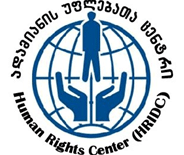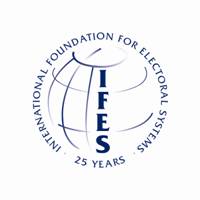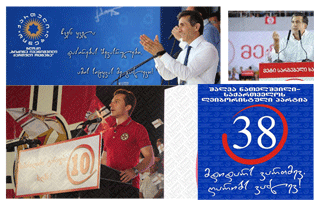
Sandro Gvaramadze
Is it easy to advertise yogurt? It might not be easy because every yogurt is almost equal, and the advertisement shall expose something special in it. As a result you must buy this particular yogurt and not other. And you must not be disappointed. This law is universal and it works in all other cases if it has long-term goals.
Politics is not yogurt but why advertisements about political parties are aired by TV-Companies, what are their purposes? To gain public support or does it advertise long-term cooperation between new government and voters? To find out this issue, the best way is to discuss pre-election promises that were announced in the pre-election political advertisements.
When we speak about advertisements, we should remember that participant political parties, who took part in the elections, did not place their advertisements on TV. The reason might have been lack of funds. Pre-election advertisements of the United National Movement, Georgian Dream, Labor Party, New Rights and Christian-Democrat Movement.
There were much common in their advertisements. Almost all of them promised us employment, development of agriculture, healthcare and cheep tariffs. How real those promises were and how much did they rely on real programs?
Two months after coming in power, Prime Minister sincerely confessed that their calculations about tariffs were wrong and they could not decrease electricity price so easily.
“The process has prolonged… of course we cannot half-divide the tariff which had expected; as we see now, we over-evaluated situation,” Bidzina Ivanishvili said at the press-conference on November 22.
Political scientist Ramaz Sakvarelidze said every promise can be realized if there is serious desire. Additionally, the terms are also significant, if something is impossible now, it can be possible some time later. He said political parties did not indicate exact time of reducing tariffs in their pre-election promises except the calendar presented by the UNM where they fixed exact dates for the realization of their promises (More Benefit to People).
How convincing were pre-election slogans which did not show how the government intended to achieve different goals? Ramaz Sakvarelidze answered that political parties offered to people what they requested; and people did not request to know details. If they had asked, details would have been provided as well. Others could also think of something like UNM’s calendar. Political scientist said: “Georgian people do not know what to request; they do not have relevant experience.”
As we have already mentioned, slogans of political parties resembled each other; for example before elections parties did not recall unification of Georgia, restoration of territorial integrity. Ramaz Sakvarelidze said UNM had made serious mistakes in this view – they had promised it but failed so they did not want to make similar mistake again.
One of the most outstanding slogans was “We Are Taking from the Rich and Giving to the Poor!” that was priority and promise of the Labor Party. However, it is still unclear what was meant under this slogan. Ramaz Sakvarelidze does not exclude that if Labor Party had won elections, they would have really realized the promise. He said property seizure is not strange in Georgian reality; but, giving the seized property to others was really doubtful.
As for the innovation in this year advertisements, the political scientist said every opposition party promised voters to “restore justice.” However, they did not clarify what they meant under this slogan and it is quite possible that different parties had different approaches to this issue.
Besides that, it was the promise that cannot be easy to check. It is easy to argue with the new government about tariffs, because it might reduce or not and it will be real fact. It is a bit more difficult to argue whether agriculture was developed or not.


This report is made possible by the support of the American people through the United States Agency for International Development (USAID). The contents are the sole responsibility of Human Rights Center and do not necessarily reflect the views of the International Foundation for Electoral Systems, USAID or the United States Government.




